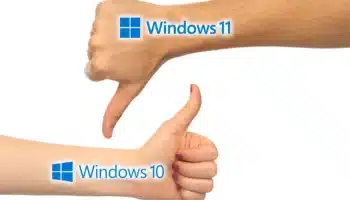Lopsided Case for Performers' Royalties Made by House Subcommittee
It was not a room where a professional broadcaster would have found the slightest bit of comfort. At a meeting of the House Subcommittee on the Courts, the Internet, and Intellectual Property Tuesday morning, a jovial and outright jocular spirit of bipartisanship prevailed, where both Democrats and Republicans spoke at length of what they characterized as the historically unfair treatment of performance artists by broadcasters who refused to pay for the privilege of playing their works over the radio.
No less than Grammy award-winning folk artist Judy Collins literally sang "Amazing Grace" at one point, changing the words to include, "How sweet the free sound," as a parody of the long-standing exemption in US law for broadcasters having to pay performance royalties.
Illegal Music Downloads Up in UK, Down in US
A survey in the United Kingdom has shown a 7 percent increase in the number of people downloading music illegally online, while the legal music download market is slowing. In the United States, however, data from earlier this year has indicated otherwise.
According to the 2007 Digital Media Survey, which was published in the UK by Entertainment Media Research and law firm Olswang, unauthorized downloading of music is at its highest level - reversing the slight decline of last year.
Wholesale Open Access Not Part of FCC 700 MHz Wireless Auction
A regretful comment made by Federal Communications Commissioner Michael J. Copps during his opening remarks this afternoon, served as the first public indication that the text of the 700 MHz spectrum auction order currently under consideration does not contain a stipulation that 22 MHz in the so-called "C-block" must be made available for wholesale access.
A wholesale access provision was one of the terms that Google was lobbying for, in its petition to the FCC in which it said it would be willing to bid $4.6 billion. However, certain so-called "open access provisions" are on the table, as a means for establishing a business model for funding a single, nationwide public safety communications network.
Store Ads Detail Xbox 360 Price Drop
Although Microsoft has remained mum on the subject, a number of retail store ads being prepared for mid-August have disclosed that the price of the Xbox 360 will be lowered by $50. The move was largely expected following Sony's $100 price drop on its now-discontinued 60GB PS3.
The Xbox 360 Premium will now be sold for $349.99, and include a copy of "Table Tennis" from Rockstar. The Xbox 360 Elite will also see a price drop, but only of $30, bringing the HDMI-equipped console to $449.99. The Xbox 360 Core, meanwhile, will cost $279.99, $20 cheaper than its original price. There are rumors, however, that Microsoft will be discontinuing production of its Core console.
Mozilla Fixes Firefox Protocol Handling
This morning, Firefox 2.0 users were automatically notified of the availability of version 2.0.0.6, with the promise that this time around, a critical vulnerability concerning how the browser tries to parse malformed resource identifiers, is fixed for good.
In its security advisory this morning, Mozilla credited Windows security expert Jesper Johansson for articulating the original problem, which has hopefully led to this final solution.
NVidia Updates Game Development Tools
Graphics card manufacturer NVidia does more than simply power the displays of many laptops and PCs; the company also offers a number of professional software tools for animation and game development. On Tuesday, NVidia released updated versions of tools designed to lower the cost of creating games.
FX Composer 2, is an integrated development environment for shader authoring, enabling fast creation of real-time visual effects. It support Microsoft's XNA platform for the Xbox, as well as becoming the standard for shader authoring on Sony's PlayStation 3 and Windows. PerfKit 5, meanwhile, offers a heads-up display that overlays real time DirectX debugging information and frame analyzation. Both tools are available for download from NVidia's developer Web site.
AT&T to Offer Mobile Music Downloads from eMusic
AT&T on Tuesday announced the launch of its over-the-air music download service for its cellular subscribers, joining forces with eMusic to offer a catalog of 2.7 million songs. But the service won't run cheap: customers can pay $7.49 per month to download up to five tracks.
eMusic, which focuses primarily on independent artists, will provide two versions of purchased songs -- one for the phone and one full-quality MP3 version for the PC. Initially, handsets from Samsung including the a717, a727 and SYNC will support the service, along with the Nokia N75. Those wanting to buy additional tracks can do so in 5-song bundles for $7.59 each. Of course, AT&T customers who have an iPhone can simply purchase songs from eMusic for 33-cents or less and transfer them to the handset via iTunes.
FCC Calls for Comments on DTV Transition
With less than two years to go before the VHF and UHF television spectra in America are handed over to the winners of an upcoming frequency auction, the Federal Communications Commission yesterday issued a call for public comments regarding better informing the public about the meaning of the February 17, 2009 transition date.
"The digital transition will make valuable spectrum available for both public safety uses and expanded wireless competition and innovation," yesterday's public announcement states. "It will also provide consumers with better quality television picture and sound, and make new services available through multicasting. These innovations, however, are dependent upon widespread consumer understanding of the benefits and mechanics of the transition."
Sony Settles with 3M in Battery Suit
Sony and 3M announced Tuesday they have reached a settlement to end a dispute involving patents related to rechargeable lithium-ion batteries. 3M sued Sony, along with Lenovo, Hitachi and others in March for using cathode materials used inside their batteries.
3M claimed it took 10 years and $700 million to develop the cathode technology, which makes batteries last longer and give off less heat. Under terms of the settlement, Sony Corporation and Sony Electronics receive full licenses to the technology. Financial terms of the deal were not disclosed, but Sony had few other options, as 3M had requested that the U.S. International Trade Commission block all imports of the infringing batteries, and any laptops using them.
Congress Considers Performance Royalties for Terrestrial Radio
Since the inception of the medium, American radio broadcasters have been exempt from paying royalties to song performers (though not songwriters), on the theory that radio already provided a service to performers in the form of promotion. But with Internet radio, satellite radio, and MP3 distribution having radically reformed the music landscape, Congress is asking whether that exemption remains valid.
At issue is much of the business model of the American broadcasting industry, which has already seen tremendous change over the last decade with the consolidation of station ownership among a handful of companies, such as Clear Channel.
Eminem's Publisher Sues Apple Over iTunes
Eminem and Apple are back in court again, this time over a dispute on whether or not the rapper's tracks are on iTunes with his permission.
While Universal distributes Eminem's albums, Eight Mile Style LLC and Martin Affiliated LLC own the publishing and copyrights to the songs. Both are claiming that they have never given Universal authorization to distribute his music online.
Sony Sued Over PS3 Cell Chip Technology
Sony has been sued in federal court over the construction of its cell processor chip in the PlayStation 3, as a California company says the parallel processing technology infringes on patents it owns. Parallel Processing Corporation filed the suit in the US District Court for the Eastern District of Texas on July 28.
The company claims Sony's cell chip infringes on a patent it received in 1991 that gave it rights to technology that governs "synchronized parallel processing with shared memory." Parallel is asking the court to impound and destroy any Sony product that infringes on its technology, as well as damages and attorney fees. Sony has declined to comment on the matter.
iTunes Sells Three Billionth Song
Apple said Tuesday that it had surpassed three billion songs downloaded from its iTunes Music Store, further extending its lead as the most popular online digital music store. Currently, iTunes contains about five million songs, plus about 550 television shows and 500 movies. It is also the third biggest music store overall, recently passing both Amazon and Target in music sales.
Apple has sold a billion songs in a little under seven months. It took eleven months to get from one to two billion, and several years to sell the first billion tracks. "We'd like to thank all of our customers who have contributed to this incredible milestone," said Eddy Cue, Apple's vice president of iTunes.
US, EU to Have Common Sat Nav Signal Design
The European Union and the United States have agreed on a common signal design for their respective satellite navigation systems, representatives said Monday. The US' GPS system has been operational for several years now, while the EU's Galileo system is still in development.
By agreeing on a common signal design, it will pave the way for receivers to easily incorporate both navigation systems into a single design, resulting in better location-finding. "We are pleased by the adoption of this key improvement to the common civil signal design," U.S. State Department Principal Deputy Assistant Secretary Reno Harnish said. "The U.S.-EU collaboration that produced this innovation and led to its joint adoption reflects the strong working relationships that we have developed on GPS and Galileo."
Real ID Debate Faces Possible Legislative Limbo
A 2005 US legislative mandate for states to begin the process of converting drivers' licenses and personally identifying documents lives on, despite measures taken by the Senate last week that were hailed by Real ID's opponents as steps toward its eventual repeal.
Last Thursday, the Senate voted to table an amendment (to set aside from discussion...in this case, indefinitely) offered by Sen. Lamar Alexander (R - Tenn.) to appropriate $300 million in federal funds to assist states in making the long, difficult transition. But a recent revision to a revision of a Dept. of Homeland Security cost estimate for Real ID implementation sets the bar at about $23 million for all 50 states, and presumably US territories including Puerto Rico and Guam, to comply with the federal mandate.
Most Commented Stories
BetaNews, your source for breaking tech news, reviews, and in-depth reporting since 1998.
Regional iGaming Content
© 1998-2025 BetaNews, Inc. All Rights Reserved. About Us - Privacy Policy - Cookie Policy - Sitemap.




